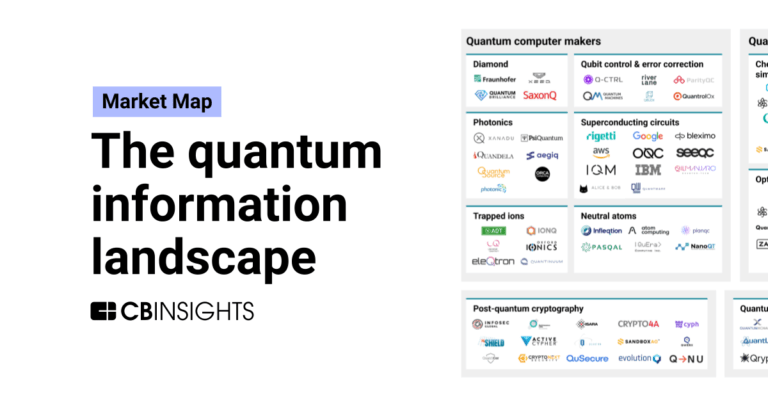
Quantum-South
Founded Year
2019Stage
Angel | AliveTotal Raised
$250KLast Raised
$250K | 4 yrs agoMosaic Score The Mosaic Score is an algorithm that measures the overall financial health and market potential of private companies.
-80 points in the past 30 days
About Quantum-South
Quantum-South is a company specializing in complex optimization problems using quantum computing software within the logistics sector. The company provides solutions for airlines and shipping companies, utilizing quantum algorithms to address operational challenges. Quantum-South also offers consulting services to help businesses understand quantum computing for their specific needs. It was founded in 2019 and is based in Montevideo, Uruguay.
Loading...
Quantum-South's Product Videos

Quantum-South's Products & Differentiators
Air Cargo ULD optimization
Optimization of loading plan for ULDs in freighters meeting a business goal with several restrictions (considering revenue, priority, weight, volume, weight & balance, center of gravity, etc).
Loading...
Research containing Quantum-South
Get data-driven expert analysis from the CB Insights Intelligence Unit.
CB Insights Intelligence Analysts have mentioned Quantum-South in 1 CB Insights research brief, most recently on May 7, 2024.
Expert Collections containing Quantum-South
Expert Collections are analyst-curated lists that highlight the companies you need to know in the most important technology spaces.
Quantum-South is included in 2 Expert Collections, including Quantum Tech.
Quantum Tech
619 items
This Expert Collection contains private and recently exited companies working on quantum computing, quantum communication, post-quantum cryptography, quantum sensors, and other quantum tech.
Future of the Factory (2024)
436 items
This collection contains companies in the key markets highlighted in the Future of the Factory 2024 report. Companies are not exclusive to the categories listed.
Latest Quantum-South News
Sep 24, 2024
The current global economy heavily relies on digital and data-based technologies, which have the use of supercomputing at their core. Latin America is a vast source of human talent in computer science, but the lag in infrastructure investment due to economic and political struggles may cause the economic development of the region to fall behind. Computer science lies at the center of the twenty-first century zeitgeist. From accurate weather predictions 1 to logistic simulations 2 , supercomputers have revolutionized the global economy, albeit mainly behind the scenes from the general public. Now, nearly every single aspect of our daily lives is connected to some form of high-performance computing, impacting the development of industrialized countries despite their differences in economic regimes. A global arms race of sorts is currently being waged between various companies and economic sectors, however not necessarily in a confrontational way, in fact, a good deal of cooperation between the key players is bringing about a synergistic approach to a more rapid development of supercomputer systems, carrying along almost every economic sector during their rise. In the academic plane, universities use supercomputers to perform cutting-edge research in every branch of science from quantum chemistry 3 to astrophysics 4 , but also for applied sciences from geology 5 to developing new drugs 6 and studying disease-spreading mechanisms in order to prevent the next pandemic, not if, but when it occurs 7 . Basic scientific research provides a nation with the opportunity of creating new industries; the acceleration of new knowledge generation powered by supercomputers has the potential to accelerate the economic development of a country. Latin America is a culturally diverse region with a shared historical background, which to some extent has included delayed economic development compared to more developed regions. Nevertheless, in recent years the growing demand for digital solutions in various industries, and the focus on supercomputing for the sustainment of a digital economy, have made patently clear that Latin America is rapidly emerging as a hub for technological innovation. Throughout the years, Latin America has lacked the level of political leadership that is often required for strong scientific developments that allow for the flourishment of a globally competitive technology-based economy. One of the primary challenges in the region is the limited availability of resources for funding high-performance computing initiatives. That is, building and maintaining state-of-the-art supercomputers calls for sizable investments in infrastructure, hardware, software, and staff, which are sometimes beyond the capabilities of many countries in the region. However, the impact of and need for such large computing capabilities is well recognized throughout the region, and therefore computational science has gained substantial traction, fueled by academic collaborations and cooperation with private sectors from other regions. For instance, initiatives like the Latin American space for collaboration and development in education, science and innovation ( RedCLARA ) aims, since 2003, for an interconnected regional environment in which researchers find the much-needed support of communications infrastructure, allowing the rapid transfer of large amounts of data, while at the same time providing a platform for testing new networking technologies. RedCLARA does not only provide data communications between users based in Latin America, but also connects them to other networks of scientists located around the world. Commercially, NVIDIA, one of the largest suppliers of GPUs and computer equipment in the world, recently reported 8 that from their total sales, Latin America has rapidly grown to around 7%, which is indicative of the rising interest in artificial intelligence applications. This is also supported by the formation of partnerships between the corporation and government agencies for the creation of AI development centers, known as NVIDA AI Nations . The history of supercomputing in Latin America goes back to the early nineties when, in 1991, the National Autonomous University of Mexico ( UNAM ) acquired a Cray Y-MP4/464 supercomputer, used mostly for basic scientific research. Ever since, UNAM has stayed at the forefront of supercomputing facilities for academic purposes in Mexico, albeit not without a strong financial struggle. In 1997, a second Cray supercomputer was put in place and in 2001 it was replaced by a third one, another Cray computer, this time acquired from Silicon Graphics, which marked the end of the vector processing era, and the rise of massive parallel computing in our country. Currently, the ‘Miztli’ cluster , comprised of 8,376 Intel cores working at 302 teraflops, provides the computing community at UNAM with enough computing power to fuel both basic and applied research. When it was first launched in 2013, ‘Miztli’ was listed at the 348th place in the Top500 list, but it was rapidly dropped off when other countries, like Brazil, rose to the top with massive investments coming almost exclusively from their booming oil sector. Since then, several countries in the region have witnessed a surge in the establishment of academic institutions, research centers, and technology parks dedicated to advancing supercomputing and related disciplines. Currently, the Pégaso (Pegassus) supercomputer , belonging to the Brazilian oil company Petrobras and built by Atos, holds the title of the largest supercomputer in Latin America . Resulting from a 60 million US dollar investment, and mostly used for data processing in geophysical exploration, the Pégaso system keeps Petrobras as one of the forefront leaders in the region since, according to the 63rd Top500 list published in June 2024, this is the eighth supercomputer Petrobras has in the list, surpassing their own earlier entries like Atlas and Dragao, also built by Atos. According to the Top500 website, Latin America holds about 2.0% of all system shares in supercomputing worldwide, with only ten systems in their latest list, nine of which are located in Brazil; the only other entry in the list is the Clementina XXI supercomputer (Lenovo) located in Argentina and owned and operated by the National Meteorological Service. Several challenges remain that need to be addressed in order to advance the state of supercomputing in Latin America, particularly in the area of infrastructure development and resource allocation. Two main points will have to be addressed in the near future to prevent further lagging: 1) public and private investment in infrastructure, not only purchasing, but maintenance, as well as continuous updating. Some other options have arisen in recent times that could help scientists to access supercomputing facilities without having to pay the investment cost of updates and maintenance, such as the offer of cloud-based services; however, despite costs being considerably lower, local economic policies may make it harder for individual researchers or institutions to pay foreign entities than it would be for larger consortia to actually acquire the equipment. Due to the large extension and geographical location of the region, the data center market is looking forward to further growth within the decade as a consequence of the increasing demand for AI, cloud services, e-commerce, and overall telecommunications . However, while supercomputers continue to advance and more financial resources are needed to keep up, a ‘throwing-money-at-the-problem’ approach is not the most sensible way to narrow the gap between nations, but rather building alliances that make the most of available infrastructure. The second main point to be addressed is: 2) the formation of human resources capable of exploiting this infrastructure, as well as sustain it and develop it. Fortunately, there are promising signs of progress based on international and interdisciplinary collaboration for the future of computing in Latin America, in order to fully develop their enormous potential for growth both academically and economically. The future of computing may well be poised to be quantum; in that regard, Quantum-South , an Uruguay based start-up, became the first Latin American firm to join the IBM Quantum Network , an organization already spanning more than 200 companies and universities. Several academic organizations as well as private capital start-ups in the region are looking towards playing a part in the projected quantum revolution, certainly the landscape of human talent available is vibrant, which makes the future look brilliant for our countries to play a part in the new chapter of the digital economy, despite the obvious political challenges. Moving forward, it is the hope that the state-of-the-art research in supercomputing made in Latin America will be brought into the spotlight, hopefully forging new avenues for cooperation that result in important scientific, technological and economical advancements for our region. References Joaquín Barroso-Flores Joaquín Barroso-Flores
Quantum-South Frequently Asked Questions (FAQ)
When was Quantum-South founded?
Quantum-South was founded in 2019.
Where is Quantum-South's headquarters?
Quantum-South's headquarters is located at Av. Ing. Luis P. Ponce 1307, Montevideo.
What is Quantum-South's latest funding round?
Quantum-South's latest funding round is Angel.
How much did Quantum-South raise?
Quantum-South raised a total of $250K.
Who are the investors of Quantum-South?
Investors of Quantum-South include Agencia Nacional de Investigacion e Innovacion and IoT Tribe - Space Endeavor.
Who are Quantum-South's competitors?
Competitors of Quantum-South include Multiverse Computing and 7 more.
What products does Quantum-South offer?
Quantum-South's products include Air Cargo ULD optimization and 3 more.
Loading...
Compare Quantum-South to Competitors

Sigma-i operates within the software as a service (SaaS) industry and develops solutions that utilize quantum annealing technology. The company provides optimization algorithms, AI-driven analytics, and tools for medical equipment scheduling, demand forecasting, and production planning across various sectors including healthcare, logistics, and manufacturing. It was founded in 2019 and is based in Tokyo, Japan.

QpiAI specializes in the integration of artificial intelligence (AI) and quantum technologies for enterprise solutions, focusing on technological agility and quantum-readiness. The company offers a suite of products that enable the development, deployment, and scaling of AI models, as well as the interfacing with quantum hardware for enhanced computational capabilities. QpiAI's solutions cater to various industries, including logistics, financial services, healthcare, and energy, providing them with optimized problem-solving and decision-making tools. It was founded in 2019 and is based in Bengaluru, India

Multiverse Computing works in quantum artificial intelligence (AI) and focuses on optimization within various sectors. The company provides AI model compression technology aimed at improving the performance of AI systems. Multiverse Computing serves sectors such as finance, energy, manufacturing, health and life sciences, engineering, aerospace, cybersecurity, defense, and chemistry. It was founded in 2019 and is based in San Sebastian, Spain.

Qblox specializes in quantum technology, focusing on the development of qubit control equipment for the research sector. The company offers quantum control stacks that integrate with existing quantum computers, designed to support scientific endeavors by providing qubit management. Qblox serves the research sector with its quantum control solutions. It was founded in 2018 and is based in Delft, Netherlands.

Classiq focuses on quantum computing software in the technology industry. The company offers a platform that enables the design, analysis, and execution of quantum circuits, transforming high-level functional models into optimized quantum circuits. The company primarily serves sectors such as optimization, machine learning, finance, and chemistry. It was founded in 2020 and is based in Tel Aviv, Israel.
1QBit Information Technologies specializes in developing hardware-agnostic platforms for quantum and classical processors. It focuses on the intersection of quantum computing and artificial intelligence. The company offers services that include optimization, simulation, and machine learning solutions designed to improve alongside advancements in computational hardware. It was founded in 2012 and is based in Vancouver, Canada.
Loading...

